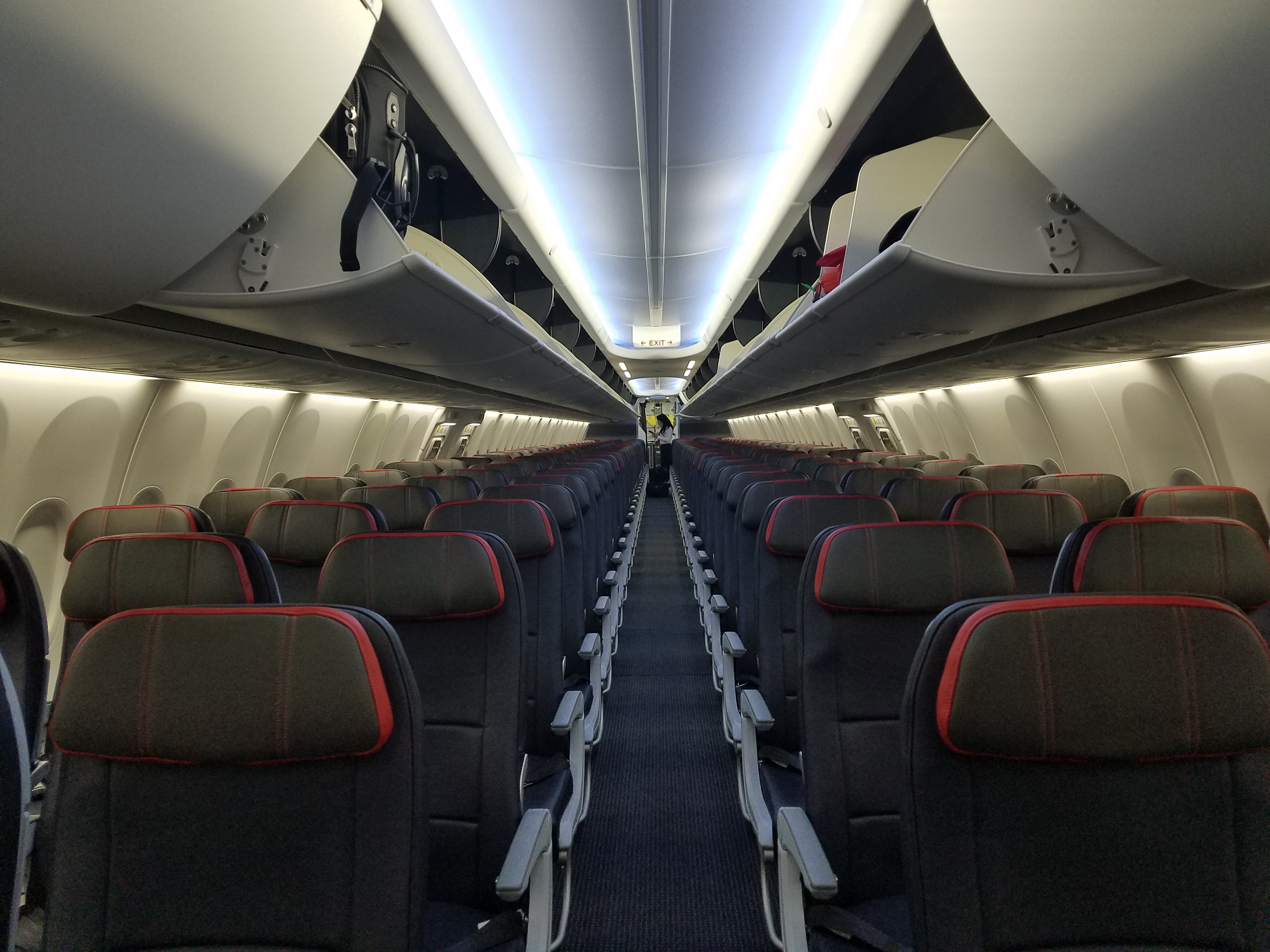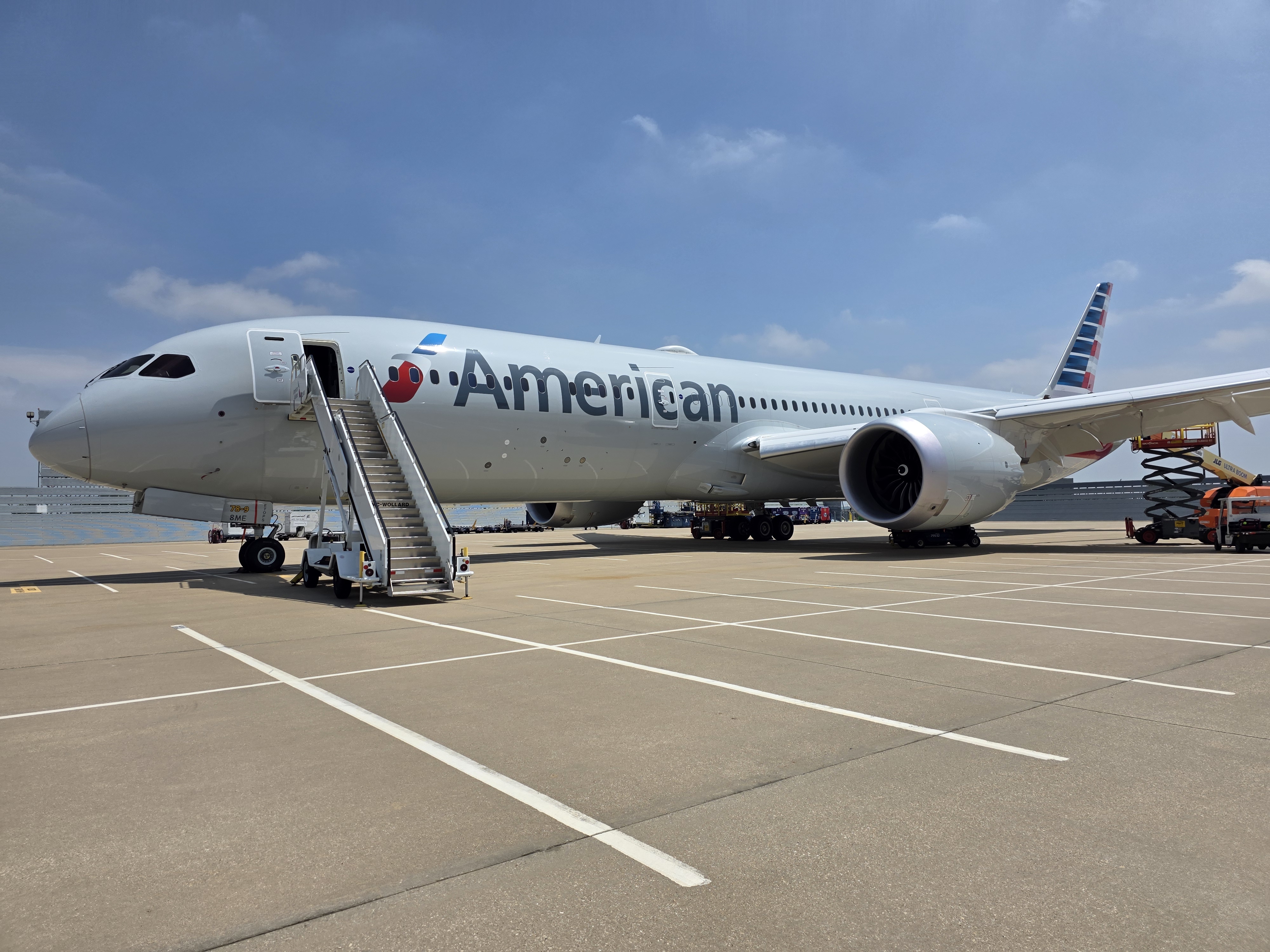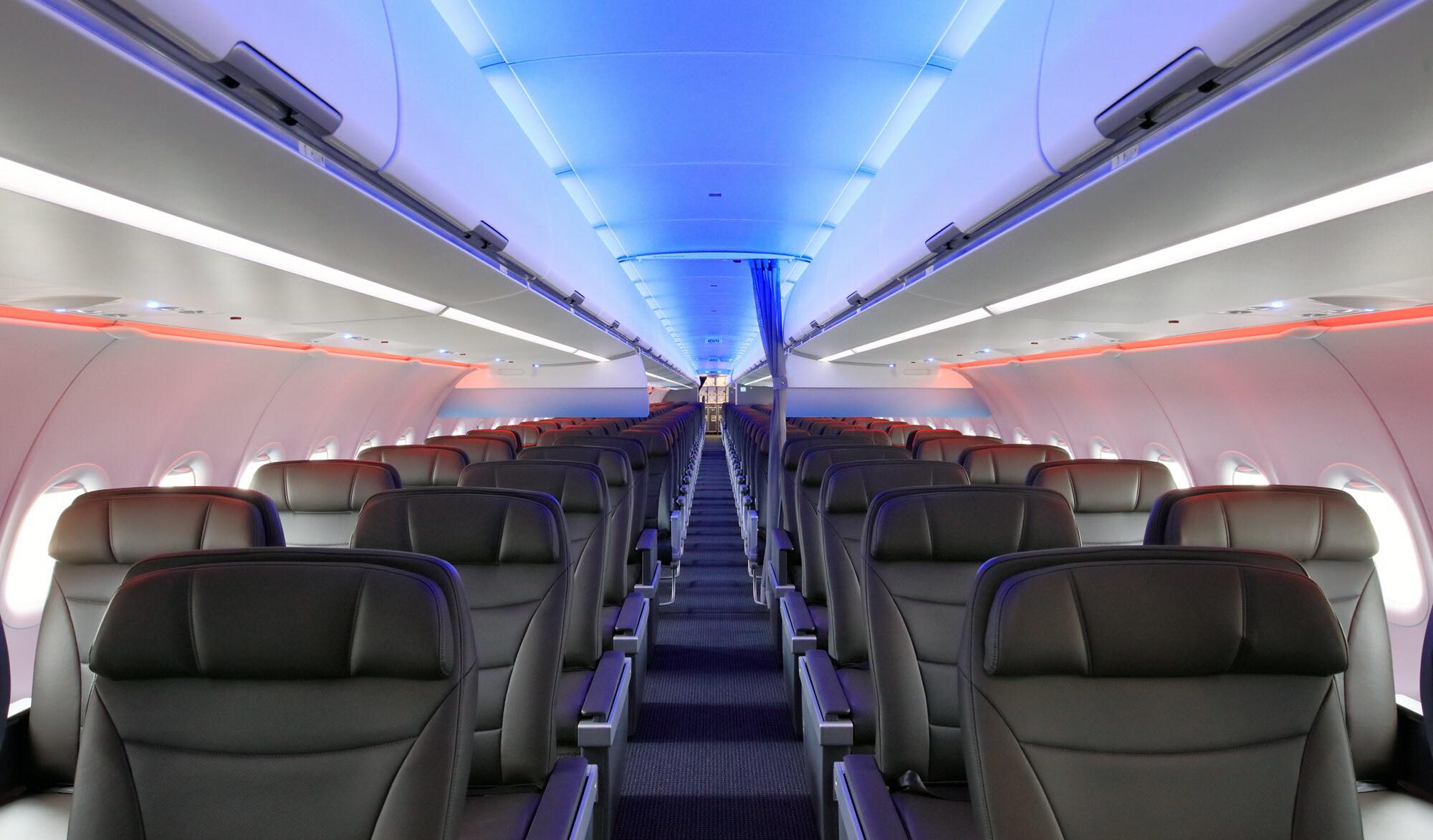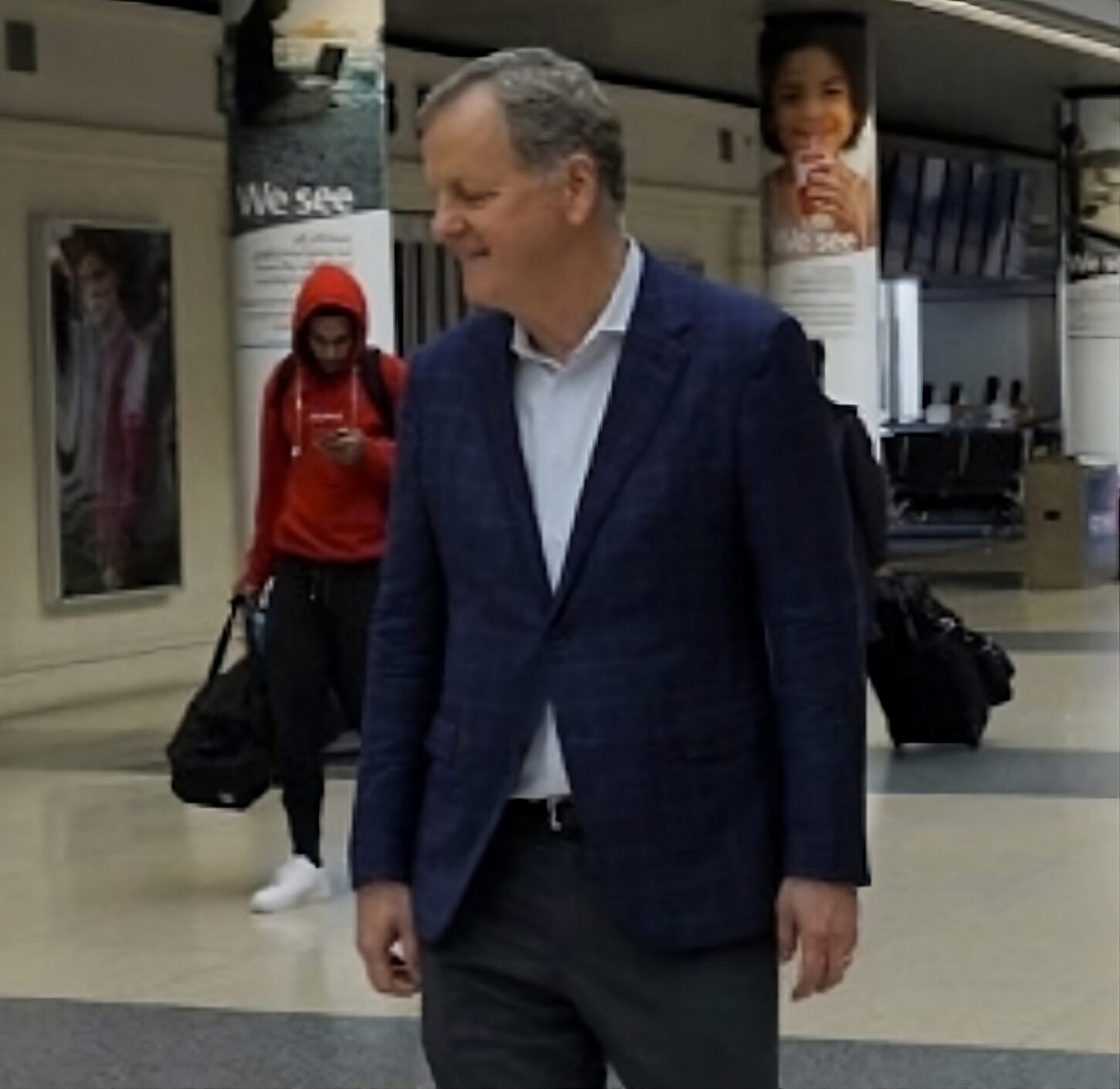The latest episode of the Airlines Confidential podcast has former American Airlines CEO Doug Parker as co-host, with former American boss Bob Crandall as guest. And since they discuss the news of the week, one of the items for discussion is how airlines have moved to charge more money to passengers traveling solo on a reservation, reserving their least expensive fares for groups of two or more.
It’s a new and fairly crude way airlines are separating out business travelers (that they want to charge more) from leisure travelers (who are likely more price sensitive, but that they still want filling unsold seats).

The old ways of doing this were advance purchase requirements (leisure travelers plan ahead, business travelers buy last minute as plans firm up) and Saturday night stays (since business travelers head home for the weekend).
For some time, airlines lost the ability to use these tools as low cost carriers offered their cheapest fares up until the last minute without such rules. So the major airlines were getting undercut and losing out on sales. So they replaced these tools with basic economy as the way they separated passengers looking for the cheapest fare from those willing to pay more.
Roundtrip fare requirements, even with Saturday stays, are back in many markets – and it seems those generally let solo travelers gain access to cheap flights without a second person on the reservation.

When the ‘solo traveler surcharge’ news was first broken by Thrifty Traveler, Delta and United pulled these fares from the market. American – which by all accounts was first to implement this idea – pulled only some of their fares. However, they’ve largely returned.
Host Scott McCartney thinks the pricing practice is fine. I happen to agree with the conclusion, but I don’t think his defense actually stands up.
[O]ne of the things that fascinates me is that we view airline pricing completely differently than we view pricing in any other retail realm. And I think the industry brought that on itself with the enormous complexity, changing prices all the time, all of that that frustrates consumers. But I do think airlines should be treated like any other business. And the airline can price the ticket any way it wants. The choice for the consumer is to buy it or not. Tell me what the price is, buy it or not.
McCartney’s take is ‘airlines can do what they want, take it or leave it’ and therefore this is something of a non-story.
- But airline pricing is complex. Consumers need to know how to get the best price. Recently there’s been advice to book one-ways, and even to book two passengers on separate reservations because if there’s only one cheap seat left on a flight and you’re searching for two passengers neither passenger would get the cheap seat (because everyone on a reservation needs to be priced the same way for technology reasons).
- So this is new, and part of showing customers how to navigate the complex world of airfares is to highlight what is changing. American Airlines starting doing this nearly a year ago and didn’t tell anybody. Delta and United noticed and copied it. But consumers need to know, too.
- And airfares are not just like every other product. There are significant barriers to entry in the airline market. The government protects incumbent airlines from competition, whether it’s foreign competition (foreign ownership rules) or access to gates (at government-owned airports) or granting slots at the most desirable, congested airports (a subsidy to incumbent carriers, since these valuable takeoff and landing rights are given free, and block new entrants from competing).

Doug Parker Was The Foremost Advocate For Airline Subsidies Throughout His Career As CEO
McCartney justifies the requirement to be traveling with someone to get the lowest fare as “sort of a BOGO kind of thing.” And that’s “a very popular retail strategy these days. Buy one, get a second one, 50% off or whatever it is. I suppose selling two seats can be advantageous over selling one.”
He says, “You know, you could also look at this thing as a family discount or couples discount. We should celebrate that.” Except that’s not really what this is, it is a new restriction on being able to get the cheapest fares not new cheaper fares.
McCartney does acknowledge it as a tool similar to Saturday night stays to price discriminate, charging business travelers more than leisure travelers. Still, he thinks consumers should give airlines a break:
We don’t complain when Home Depot sells two by fours at a higher price in one city or another and we have no idea how Best Buy decided to price that TV. …And by the way, Internet service, cleaning service, real estate, just about anything else costs more for a business account than a home account.
Some of that is price discrimination but some of that is also a differentiated product where businesses need greater bandwidth and uptime guarantees for internet than consumers. But the concern isn’t that businesses have to pay more for airfare! It’s that consumers need to know that the advice changes on how to get the lowest price changes.
When he says “as a consumer, I can buy it or I can pass” the truth is that you can buy from one vendor or buy from a different vendor but airline competition is limited. Few did more to limit it than Doug Parker by leading industry consolidation, and homogenization. There’s just so little scope for product differentiation in the airline industry.
Airlines were caught with a new strategy that they were embarrassed by which is why United and Delta initially pulled the fares! They weren’t comfortable being straight when asked about it, in fact they declined to comment or even confirm the practice. That should tell you something.
I don’t have a problem with it, but airlines should own it. There’s nothing wrong with exposing it! And it’s important to help consumers navigate the complex world of airfare because of the tremendous information asymmetry involved.
Doug Parker, though, says that “as a CEO” he would “never use” the phrase “price discrimination” because it “sounds like something bad.” But he argues that airline pricing complexity is great for the consumer because “someone’s getting a really good deal on the back” in coach, “someone who wants an aisle seat now can get, will pay more than someone who doesn’t care where they sit.” That basic economy restrictions are great.
Ironically, he agrees with Scott McCartney that airfare pricing should be treated just like any other product, but argues that airlines do price differently than any other product. I don’t think he can really have it both ways.
Parker suggests “if you took the entire cost to find the airplane, divided amongst 150 seats, you need to charge $500 for every seat, right? In order to make a modest profit. But if you can charge some people, a thousand and some people 200 and get to the same point, that’s, that works better. So that’s what’s happening.”
[S]omebody’s figured out that, yeah, if you’re traveling over a, you know, holiday weekend and you’re by yourself and or right before a holiday weekend, you’re by yourself, you’re probably someone who you may be someone’s on business. So let’s see if this works.

If you’re traveling alone on a holiday weekend maybe you’re a business traveler. Maybe you’re meeting up with you family for vacation. Maybe you just couldn’t get the airline’s website to work trying to buy multiple tickets at once. Or maybe different members of the family are deciding at different times what flights to take, or they’re paying for tickets separately and buying their flights themselves (rather than having person pay, and trusting everyone else to Venmo them).
That’s why this is a crude tool. Maybe it’s even true most of the time, and people they’d want to offer cheap flights to don’t get those offers – because airlines are using a proxy rather than truly personalized pricing.
Parker treats it as though there’s a move to make it illegal to price this way, but that’s not really what’s going on here – there was coverage giving consumers information they needed to buy tickets the airlines are selling, because airlines aren’t providing that information.

In leaked comments several years ago, Doug Parker defended legacy airline price discrimination and argued it was good for the customer but he seemed to misunderstand the value and details of his own airline product.


Im pretty sure the cost per item varies if you buy a 1 pack. 2 pack or 12 pack. How’s that different than charging less per passenger why flying as a group?
You’re starting to sound like a clown now, with this abject stupidity.
Please explain why this is not illegal discrimination based upon familial status at least in those states that prohibit that kind of discrimination.
Doug Parker is like a nasty dog that just won’t quit barking all of the time.
Actually I apologize, any dog is preferable to Doug. I wish he would just shut and go away, but he loves attention. Maybe he could be neutered?
@LAX Tom — “Entrance of the Gladiators” *the circus theme* (Unrelated, but hope you and yours are alright in LA these days. We’re doing our best in NYC as well. Interesting weekend, ahead…)
The solution is to buy two tickets and then call AAL and tell the agent to divide the name you don’t want and refund. Air fare is guaranteed when ticketed so you’ll keep your lower fare for the single ticket.
@Michael Lissack – It is not discrimination because there is no preference given to a flier’s marital status or any other consideration. It is simply the purchase of multiple seats which is cheaper for the airline than 2 separate purchases and also, as Gary noted, more likely to be leisure travelers who are more price sensitive. There is no legal basis to ban this or any other element of airline pricing. Also, I STRONGLY disagree with Gary that this is a solo traveler surcharge as that isn’t the case, it is simply a discount for multiple ticket purchases. Everyone ISN’T entitled to the cheapest seat on a plane. If you don’t believe that try booking a flight 8 months in advance versus 2 weeks out for a popular destination. I assure you the fare classes for all the cheaper seats will be gone and you may well pay 2 or 3 times what the person sitting next to you paid.
Fantastic. Charge OPM flyers more. Who cares. That’s just corporations taking money from each other.
And it helps keep prices lower for everyone else.
Ideally, all miles earned would also be going to the entity that’s paying for the ticket not freeloader OPM flyers.
I guess Doug has no problem with Uber charging him more as a single rider. This is assuming that he remembers to call for a ride home before last call at the bar…
@AC @Michael Lissack — *Price* discrimination is legal and a common practice used by airlines and hotels (and many other industries with dynamic pricing, based on demand, availability, etc.) It may be illegal (in the USA) if the company were to *explicitly* seek to harm a ‘protected classes’ of people, say, on the basis of race, gender, age, class, religion, or sexual orientation. Like, American would have to state “Pastafarians pay double!” Bah.
As for ‘discounts,’ that’s not a panacea, necessarily. Courts in states like California, Maryland, Pennsylvania, and Wisconsin have ruled that “Ladies’ Night” discounts violate state or local statutes prohibiting gender-based price discrimination. However, a federal court ruled against a men’s rights activist who argued that “Ladies’ Night” promotions violated the Equal Protection Clause of the Constitution, finding that private bars and nightclubs are not state actors.
Bigger picture: I like that Gary keeps pushing this. If anything, it sheds a light on various tactics. “Send in… the clowns..”
If they have lower prices for 2 passengers, they should disclose it when searching for the fare. For example,
Basic economy $159 ($99 each if 2 passengers)
Soon there will be AI that will try to extract more money. Maybe it can search your email and determine if the trip is essential.
@derek — ‘Soon’?? *gestures broadly* It’s already here!
This solo travel “fee” is a nothing burger. First, it’s rare and you will struggle to find one. Second, bulk discounts are everywhere in the marketplace. Bagels are cheaper by the dozen. You often get a discount at the grocery store if you buy multiples of the same item. Costco makes you buy in bulk. Just leave the airlines alone on this. I doubt it will catch on, but if it did it would likely result in slightly cheaper fares for price sensitive family travellers. I would also note that airfares have risen much slower than the overall rate of inflation for decades, so nobody is really being swindled by airline pricing complexity.
Why is this considered charging solo travelers extra, when it could be seen as charging a family a discount? They’ve offered group travel discounts for decades. It used to require 8+ passengers, now it only requires 2. How is that a bad thing? This helps differentiate prices for cost sensitive families.
Dishonesty is in not disclosing to the public this pricing rule. Then airlines wonder why the public has low trust in them.
Tell that drink to shut up and tell him to stop getting DUI’s
I travel a lot. EP on AA. And I am also a business owner. I am surprised they did not just simply ssy, “When you buy more widgets of something, you can expect a lower per unit price.”.
This is no different. And the pendulum of supply and demand will make it beneficial for the airline and the customer.
On another site, it claims that UA quietly reintroduced the pricing scheme. So which is it?
Thank you again, Jeff, for telling us about this side of ticket pricing. I agree with Derek and TC, and appreciate their comments. At time of ticket purchase, airlines should be up front and reveal there are different fares for the exact same seat. We are not putzes.
Much ado about nothing. Of course price discounts for multiple purchases is fine. Price discrimination is legal and fine unless done on the basis of race, sex, etc. Sometimes it benefits me, sometimes it disadvantages me. Such is life.
This is discrimination based on marital status.
@ Gary — Faux outrage.
I’m a solo traveler for leisure and this whole pricing strategy is fine IF you advertise BOGO pricing in effect. Comparing to Home Depot is silly, though. I don’t want the government to get involved, but there does need to be more transparency.
@John: If you go to the grocery store, you can buy different quantities of the same soda or orange juice or other products for different unit prices.
But in a grocery store, not only will all the prices for the different quantities be displayed, in many stores the unit price (say, per ounce) will be displayed too, so you can compare.
I don’t know of any airline that automatically shows you, when you’re pricing a ticket, that you can get 1 ticket for $300 or 2 tickets for $550, for example.
These ceos should be forced to live their ludicrous claims. Only be allowed to travel coach with their predatory practices. Also there should be no more bailouts if they want to pull this shtick.
Everything he said as a justification was nothing but a middle finger to a single person.
This is absolutely discrimination against solo travelers because it is not disclosed or marketed as discounted pricing for buying more than one ticket. As a solo traveler I don’t need more than one ticket and don’t have the opportunity to buy one at the lower fare – especially when I don’t know that it exists. I’m paying more simply for being single. And of course Parker doesn’t care. He made his millions and doesn’t need concern himself with price when making purchases. He’s out of touch with reality.
I think this is absolutely nasty. Charging college students, who mostly travel solo, more than middle aged couples with a house.
Disgusting.
Markets are highly imperfect (for example with unfettered markets, injured veterans would be dumped to the side of the road because they’re too expensive to care for) and there should be one against this.
I hate when Publix charges BOGO 2/$4.00 for hamburger buns. I only need one. But it is what it is. Not $2 for one.
Parker and Bob Crandall the worst and the best former American Airlines CEO”s. Like other readers Parker should shutup and go away. .
Obviously you didn’t listen to the podcast objectively.
Don’t understand why businesses that negotiate with airlines for favored business travel partner don’t require that this practice not apply if they want their business.
Do only airlines have product fare specialists? a soda, 2×4 or gallon of gas: has buying these products become harder and more complex than buying an airline seat? More specifically, has buying/using the cheapest soda, 2×4 or gallon of gas become easier while the cheapest airline ticket much more difficult? Sit at the back of a plane in a window seat, wait for 100+ to take their time gathering 2 pieces of luggage each to slowly get off the plane then write about how “airlines are just another business”.
@Mary — But there’s no evidence the airlines are going after “college students.” What APPEARS to be happening is the airlines want to raise prices for solo travellers booking at the last minute. These are mostly people who are travelling for business. This is what they used to do with the “Saturday night stay” requirement. But they now don’t want to discourage last-minute leisure travel, which explains the discount for 2 or more people. College students, like most leisure travellers, tend to book in advance and can get single tickets at the same price as those travelling with friends/family.
Again, this is normal business behavior (albeit a little too complicated for my taste) and a nothing burger for 99%+ of travellers. Save your outrage for a real issue..
My wife and I are both EP, travel together, and usually book FC. We often experience the opposite on AA where there is only one seat available at the best price and a two person ticket will price at twice the higher fare instead of splitting the difference. If it’s a big difference, we just book separately. This comes up often with Google flight alerts where I prefer to track for one passenger to see the price per seat, but when I go to book the fare is often higher.
@Joshua K
Thank you for saying that, about how grocery stores exhibit TRANSPARENCY in their bulk discounts. Anyone shopping in the grocery store can make an informed decision if they care about getting the cheapest price per ounce. Clearly marking each deal, explaining how it works, and mentioning if you need to use the company card (not a credit card, one of the purchase tracking cards), or even if you need to use their app to get the special deal—the grocery store offers all this information listed clearly right on the tags on the shelf. On the other hand, shopping for plane tickets feels so random, with the pricing seeming arbitrary and changeable as the weather.
Unrelated to the above point, plane tickets are one of the few places in which a single person cannot simply buy more and use later. It might be strange, but if a restaurant offers a “buy one entree get one 50% off” deal, for example, in most circumstances the extra could be boxed and taken home to be eaten the next day. But there’s no way for a single flier to use a purchased second seat on a later date. ♀️
When multiple passengers are booked under separate record locators, the airline incurs higher operational costs. Check-in staff, for instance, must process each traveler individually, increasing labor time and reducing efficiency. This also leads to complications with seat assignments, baggage handling, and gate coordination, often requiring additional staff involvement.
Moreover, managing separate itineraries demands more system resources for data storage and processing. By consolidating travelers under a single record locator, airlines can streamline operations, reduce errors, and lower overall costs.
No consumer in any market wants to feel that they’re being manipulated. The airlines love their business if it just wasn’t for their customers.
No airline CEO would buy a house when the price was determined by the day of the week he would buy it, or who was looking to buy it based on how long they would live it it each week, or any other criteria outside of the features and location of the house
Every time this guy opens his mouth it confirms what an inept and totally incompetent excuse he was for an airline so called executive. His ideas and opinions are those of a verified looser and the results he produced are prime examples.
Mentioning Doug Parker and Bib Crandall in the same sentence is comical.
I won’t besmirch a business for maximizing revenue, that’s what they do. I do notice that on the Delta app/website if I pick the business choice I can only book single tickets. Haven’t played around to see if the fares are different
What part of buying two instead of one is discrimination? Sam’s, Costco and bjs are built on buying in quantity. The cruise business charges singles more. Sorry you are a lonely loser but quantity is what drives sales. Next you will want the convention rate for hotel rooms when you are just buying one. Get over it lonely losers
PLEASE do not post anything about Doug Parker. He was absolutely the worst leader in American Airlines history. And almost put the company under & out of business. Morale & productivity had never in the airlines history been lower under his tenure. Used car salesmen have more ethics than Parker. He’s not & never will be Bob Crandall. Enough already.
@Alan wow you sound jealous of people that travel for business and get fringe benefits. Maybe you should look for a different job if you’re that upset that you picked the wrong career.
It’s so nice to see the country again. Especially in an electric car.
As if living solo wasn’t expensive enough when you have to cover all the rent and utilities and groceries on your own, you can’t even travel without getting fleeced.
Airfares are not like Home Depot commodities by any stretch of logic. If I buy the paint brush and roller set because it is promo’d and cheaper than buying the paint brush alone, I don’t get banned from Home Depot or retroactively charged extra for the brush if they find out I didn’t use the roller. I can also keep the roller for another job months, years, or decades later, or sell it to someone else. When airfare rules become like these other markets, maybe then I might accept their pricing arguments.